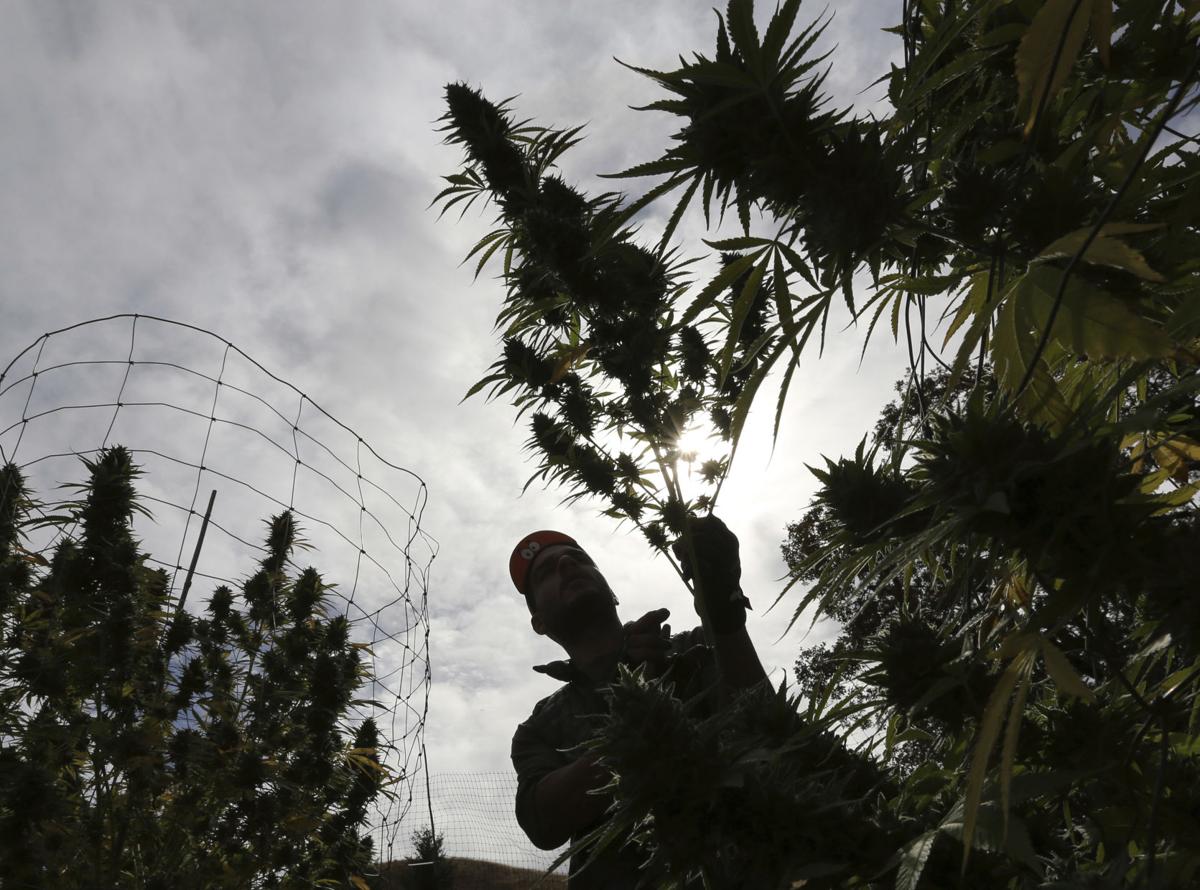Arizona is among five states — along with California, Maine, Massachusetts and Nevada — voting on whether to legalize the recreational use of marijuana. Three others — Florida, Arkansas and North Dakota — decided whether to permit marijuana for medical purposes. Montanans voted on whether to ease restrictions on an existing medical marijuana law.
Collectively, it was the closest the U.S. has come to a national referendum on marijuana.
If "yes" votes prevail across the board, more than 23 percent of the U.S. population will live in states where recreational pot is legal. The jurisdictions where that's already the case — Alaska, Colorado, Oregon, Washington state and the District of Columbia — have less than 6 percent of the population.
Opponents of recreational pot in Arizona have poured millions into defeating it. They have splashed the airwaves with commercials pointing to the pitfalls in nearby Colorado, which some lawmakers there have called misleading.
But legal marijuana is a toss-up going in to Election Day.
Proposition 205 would allow adults 21 and over to possess an ounce of pot and grow up to six marijuana plants. It would create an agency to license and regulate marijuana and keep tabs on pot shops. Retail stores could not open until March 2018, although it would be legal to use pot as soon as election results are official.
The drug is still banned under federal law. The effort to defeat legalization in Arizona has drawn donations from local businesses including Discount Tire Co., which gave $1 million, and Insys Therapeutics Inc., a pharmaceutical company developing a synthetic pot compound.
Out-of-state donors also pumped cash into the fight, including Sheldon Adelson, the Las Vegas casino magnate known for his support of conservative causes, who gave $500,000.
The No on Prop 205 campaign aired TV ads that feature former Colorado school and city officials who say legalization has led more teens to use the drug, businesses to target edibles to children and almost no money to flow to schools, as proponents promised when it passed in 2012.
Three Democratic Colorado lawmakers say the ads are inaccurate and misleading. State Sen. Pat Steadman and Reps. Jonathan Singer and Millie Hamner wrote a letter last week, saying the lion's share of total marijuana tax revenue went to the Colorado Department of Education from fiscal 2015 through 2017.
No on Prop 205 campaign manager Adam Deguire said the lawmakers have "been bought and paid for" by the marijuana industry and that they are pushing misleading information. The campaign says legalization will lead to more criminal activity because groups that can grow pot in Arizona will sell it in states where it's illegal.
Supporters say legalization would result in safer communities and more money for schools. They say it would eliminate the black market, weaken drug cartels and allow police to focus on more serious crimes.
Sales of the drug in Arizona would be taxed at 15 percent, generating $53.4 million in 2019 and $82 million in 2020, according to a report by the nonpartisan Joint Legislative Budget Committee.
Of that, $15.2 million will go to K-12 schools beginning in 2019 for operating costs such as teacher pay, construction and maintenance. Another $15.2 million would fund full-day kindergarten.





